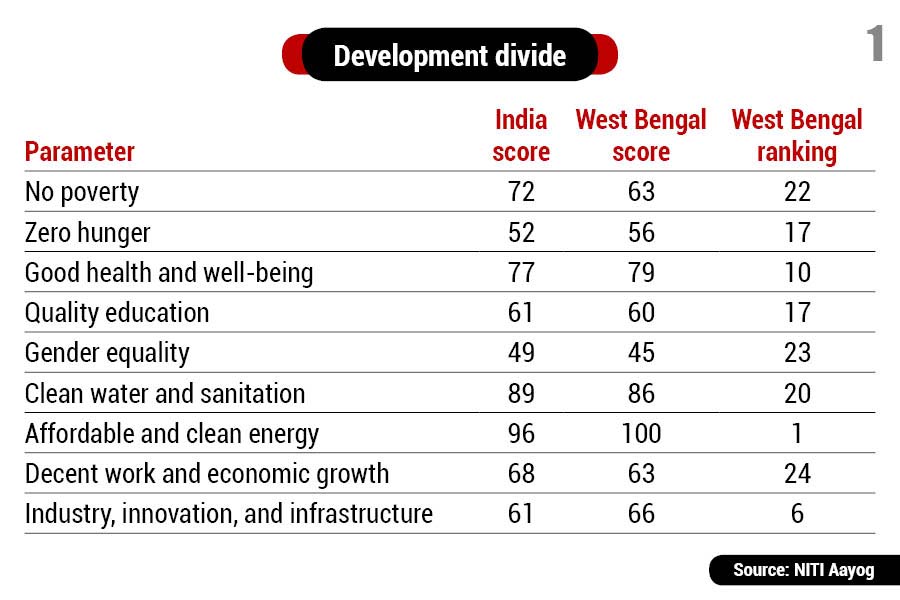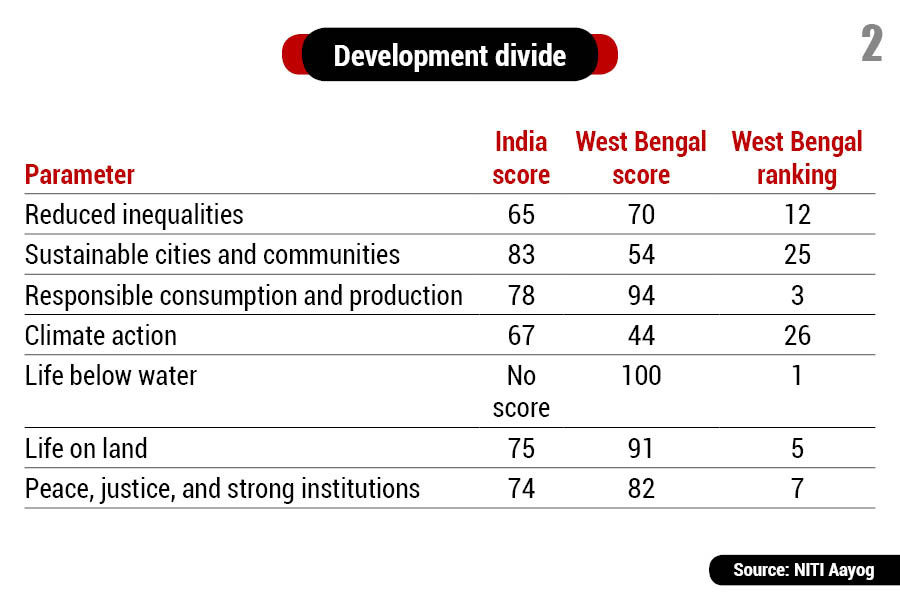West Bengal has made remarkable progress in sustainable development, becoming one of India’s leading states in this crucial area. The SDG India Index 2023-24, a report jointly developed by Niti Aayog, the United Nations Development Programme (UNDP), and United Nations India, highlights the state’s efforts in aligning with the global Sustainable Development Goals (SDGs).
Over the past two years, West Bengal has significantly improved its SDG score, jumping from 62 in 2021-22 to 70 in 2023-24. This 8-point increase has pushed the state up to the tenth position in the country, a noteworthy improvement from its previous rank. This progress places West Bengal among the top states in terms of score improvement, alongside Assam, Manipur, Punjab, and Jammu and Kashmir.
The report also reveals that West Bengal has exceeded the national average in 8 of the 15 key SDG indicators, including ‘zero hunger,’ ‘good health and well-being,’ and ‘affordable clean energy.’ However, the state still faces challenges in areas like ‘no poverty,’ ‘quality education,’ and ‘clean water and sanitation.’ Despite these hurdles, West Bengal’s overall progress reflects its strong commitment to sustainable development, balancing economic growth, social well-being, and environmental protection.


What We Can Learn from West Bengal’s Journey
West Bengal’s journey offers valuable lessons for anyone interested in sustainable development. The state’s ability to improve its SDG scores demonstrates how focused policies and consistent monitoring can lead to significant progress. For instance, West Bengal’s success in ‘affordable clean energy’ is part of a larger trend across India, where renewable energy projects and energy efficiency have become priorities.
However, the state’s struggles in areas like ‘quality education’ and ‘clean water and sanitation’ remind us that sustainable development is complex and multifaceted. Success in one area doesn’t guarantee success across the board. To truly achieve sustainable development, it’s essential to address all aspects of sustainability in a balanced and integrated way.
Making Sustainable Choices
West Bengal’s achievements serve as a reminder that we all have a role to play in achieving sustainable development. Governments, businesses, and communities need to collaborate to replicate successful strategies and find new solutions in areas where progress has been slower. But individuals also have a significant impact. By making sustainable choices in our daily lives—like supporting clean energy, reducing waste, and advocating for gender equality—we can contribute to a more sustainable future.
Moving Forward
West Bengal’s progress over the last two years is a powerful example of what can be achieved with dedication and strategic planning. While there’s still work to be done, the state’s improvement in SDG scores shows that real, transformative change is possible when economic, social, and environmental goals are pursued together. As we look ahead to 2030, West Bengal’s experience reminds us of the importance of commitment, collaboration, and innovation in building a more equitable and sustainable world.
Click here to learn more about how to adapt a zero-waste lifestyle.



